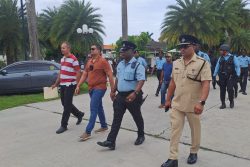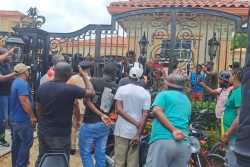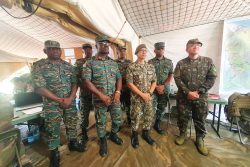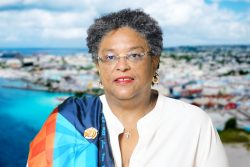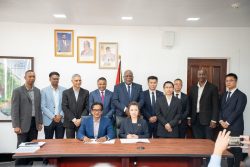Toshao Timothy Lewis and his son Paul Lewis of Kurutuku are among the unsung heroes of Guyana. They were instrumental in saving six wounded soldiers who were at the Makapa GDF outpost, where the health facilities were woefully inadequate for treating serious injuries. These men, serving in the defence of the country, found themselves in dire circumstances, vulnerable and reliant on the kindness and expertise of local Indigenous communities. Paul Lewis intimately familiar with the terrain, risked his safety to guide these soldiers through the unforgiving wilderness to secure medical care.
Yet, despite his heroism, he is yet to receive the public recognition he deserves. The lack of gratitude and appreciation for such selfless acts is a significant issue in Guyana today, where the emphasis is often placed on politics, power struggles, and narrow national interests. Why does it seem that those who save lives—often in the most difficult and dangerous conditions—go unnoticed? Is this due to the belief that acknowledging their efforts leads to an admission of gaps in systems? Will acknowledging Toshao Timothy Lewis from Kurutuku and his son Paul Lewis highlight the gap that there should also have better services available in these remote locations to ensure they are capable of at least stabilizing trauma before transfer?
Is this level of care and treatment one expects from the GDF in relation to ranks in the hinterland and very remote areas?
This newspaper previously reported that at around 9:00 pm on February 17th, Toshao Timothy Lewis received an urgent call from Lieutenant Colonel Selwyn Austin at the Makapa base. He told Stabroek News that the lieutenant colonel informed him that an attack by sindicatos had taken place and six soldiers had been wounded. They needed assistance to evacuate the injured soldiers as soon as possible. According to Toshao Lewis, the lieutenant further explained that his son, Paul Lewis, a boat captain, was needed to transport the wounded from Makapa to Kurutuku. After receiving the call, Lewis contacted his son, who was just 10 minutes away from his house in the mines. Paul Lewis’ boat left Kurutuku for Makapa just before midnight. Some of the significant challenges Lewis faced during the rescue mission were navigating through an unusually dry river and manoeuvring a small boat through the hazardous Kanaima waterfalls. However, much to the shock of citizens, due to the Kurutuku health outpost not having any patient rooms, the soldiers received medical attention under the waiting area shed. Both the toshao and his son are reported as having stated that the outpost needs upgrading, as it doesn’t have any beds or rooms for patients and are calling for it to be converted to a hospital. “If it wasn’t for Kurutuku, these soldiers might have had a much more difficult time getting help,” he said to this newspaper. “I’ve raised this issue before at the National Toshaos Council meetings, but now it’s even more urgent. We need better resources to help in these situations. I’d like the Minister of Health to look into providing enough supplies and to turn this outpost into a hospital.”
In Guyana, where tempers often flare, and the atmosphere can feel charged with frustration, simple words of thanks can be transformative. A culture of appreciation could help to bridge the gaps that have widened over the years. Instead of perpetuating the toxicity of groupthink, where negativity and criticism are given centre stage, we could cultivate an environment where we acknowledge and celebrate the good, where the work of individuals like Toshao Timothy Lewis and Paul Lewis, are recognized for the profound impact it has on society.
Why has this culture of recognition been so elusive in Guyana? Could it be that the failure to acknowledge such contributions stems from an unwillingness to confront uncomfortable truths? Could it be that recognizing the heroic actions of Indigenous communities like those in Kurutuku might force us to face the reality that essential services in remote regions are woefully inadequate? Or is it simply a case of cultural oversight, where the contributions of certain groups are not deemed important enough to warrant attention?
Regardless of the reason, it is clear that something needs to change. As a nation, we must recognize the value of those who go above and beyond for the good of others, particularly those who often work in the shadows, unnoticed and uncelebrated. The Indigenous communities of Guyana, such as those in Kurutuku, have time and again saved the lives of soldiers who fall ill or are injured in the interior. These communities know the land like the back of their hands, and their expertise is invaluable, yet their contributions are often silenced. This silence is not only an injustice to those individuals but to the country as a whole.

